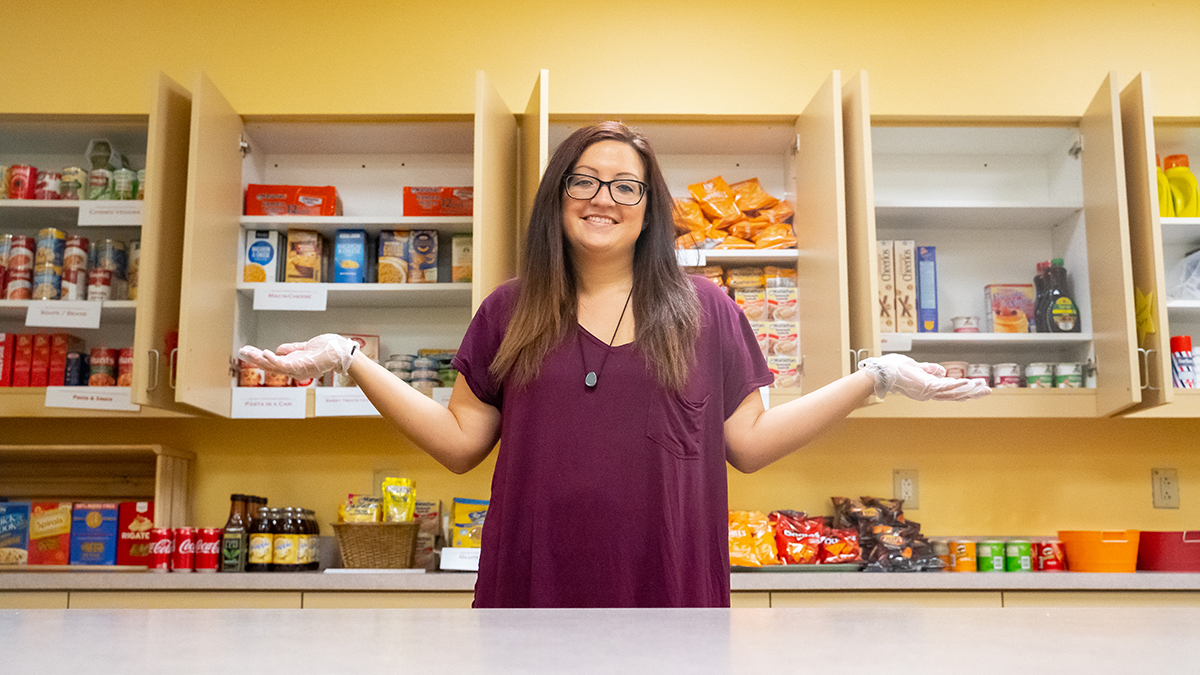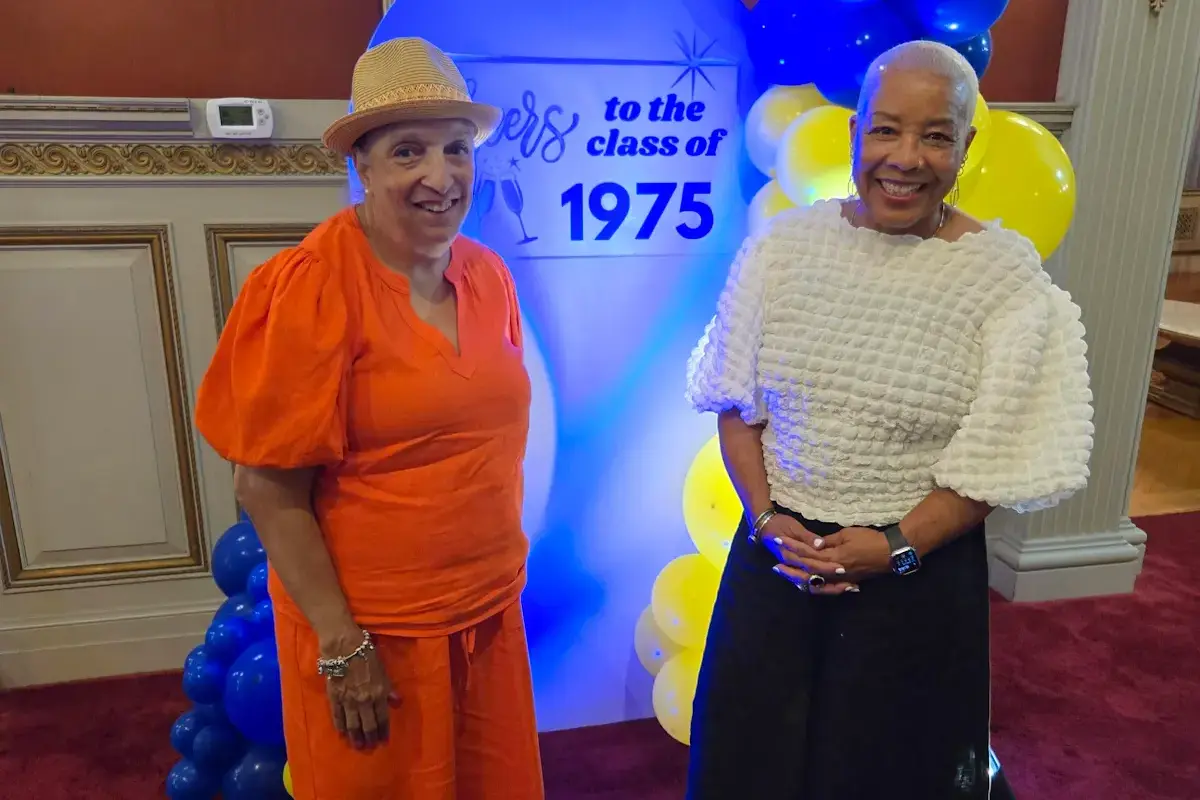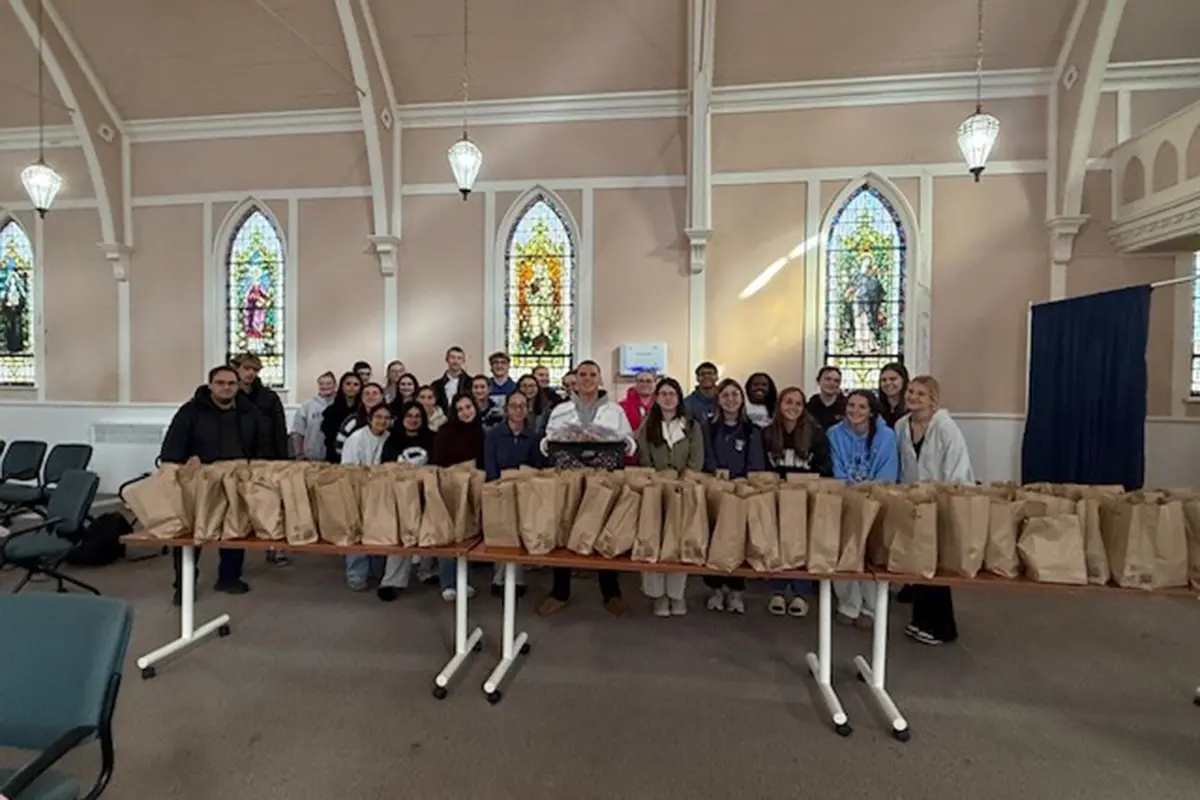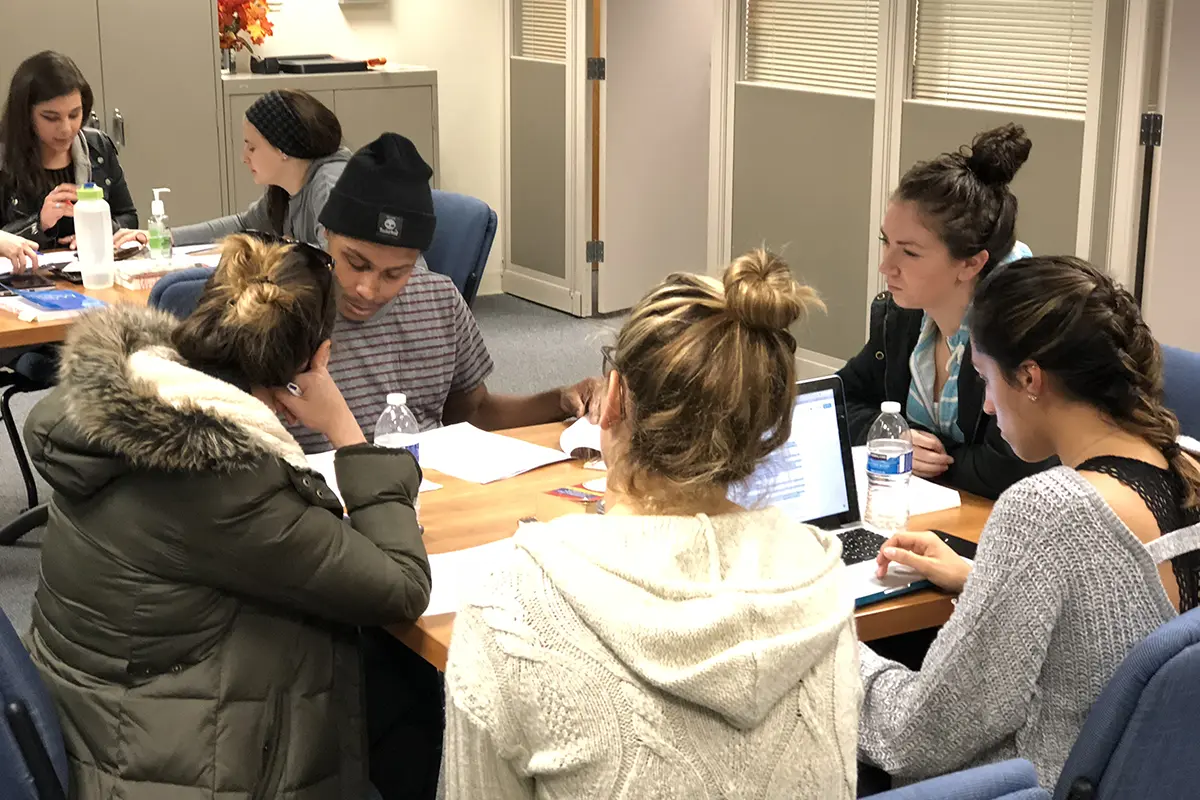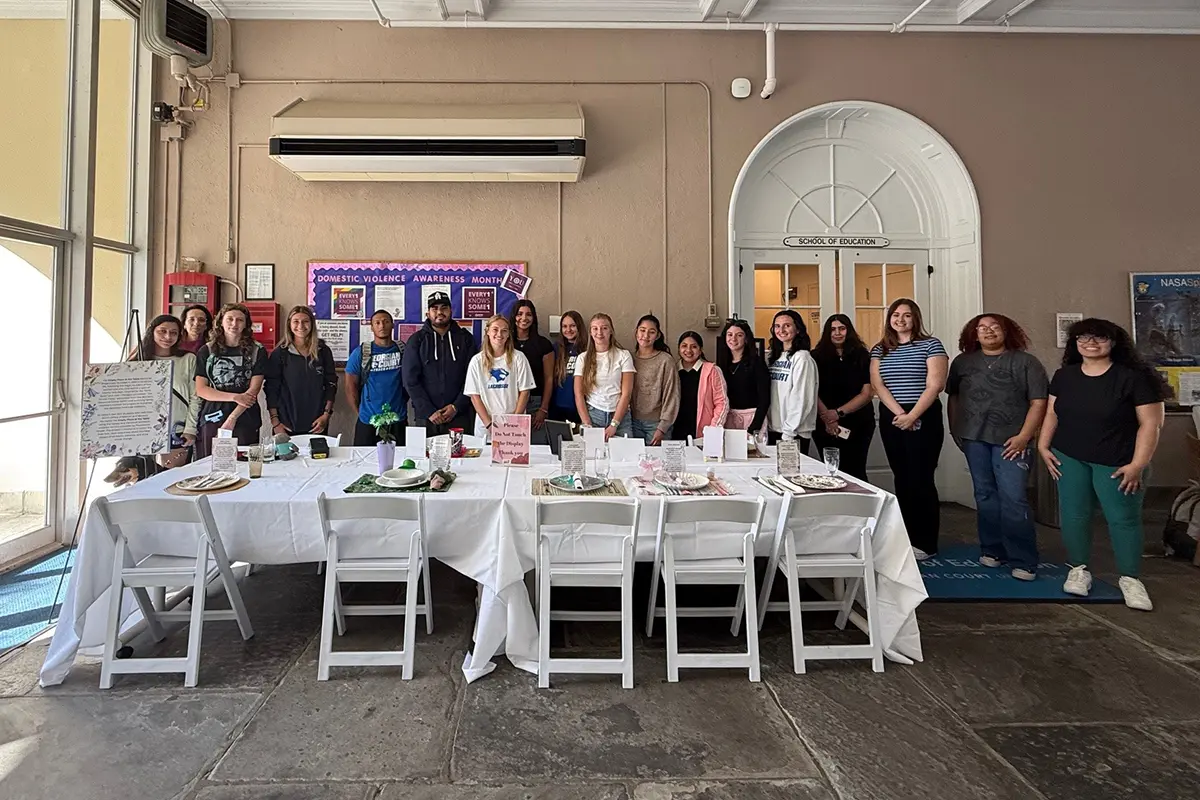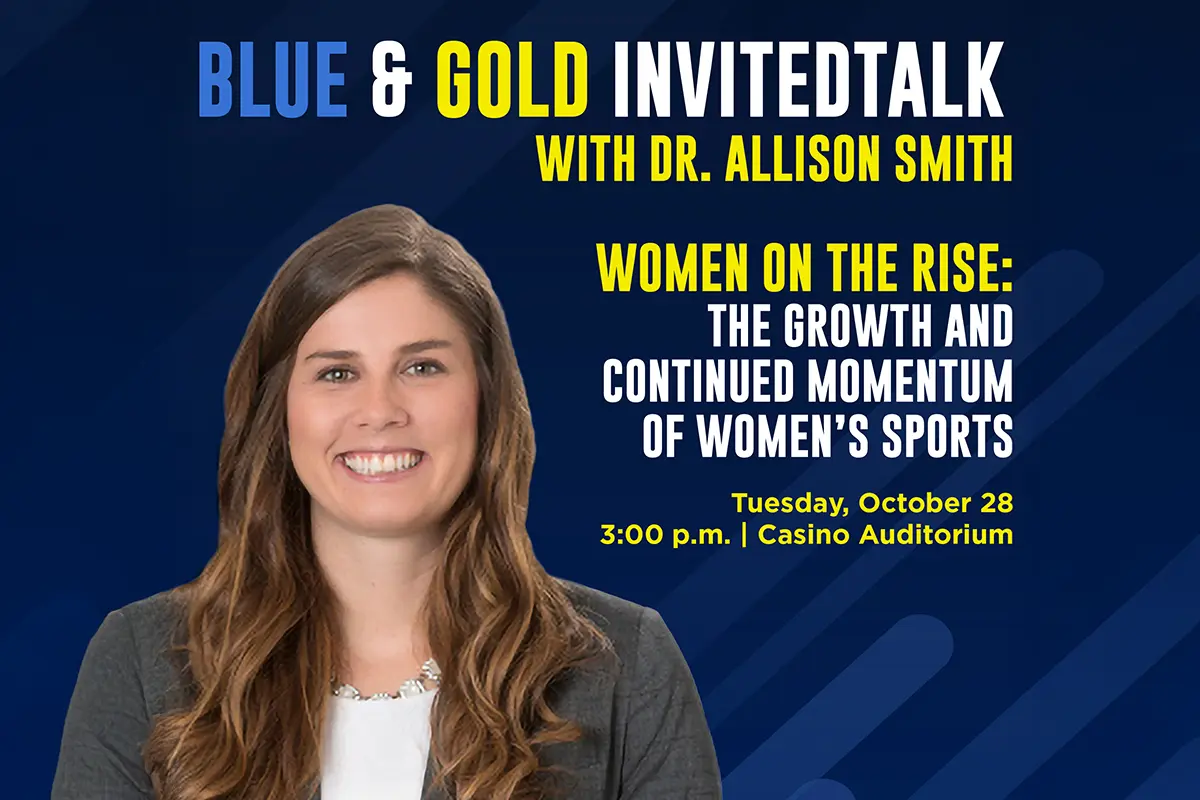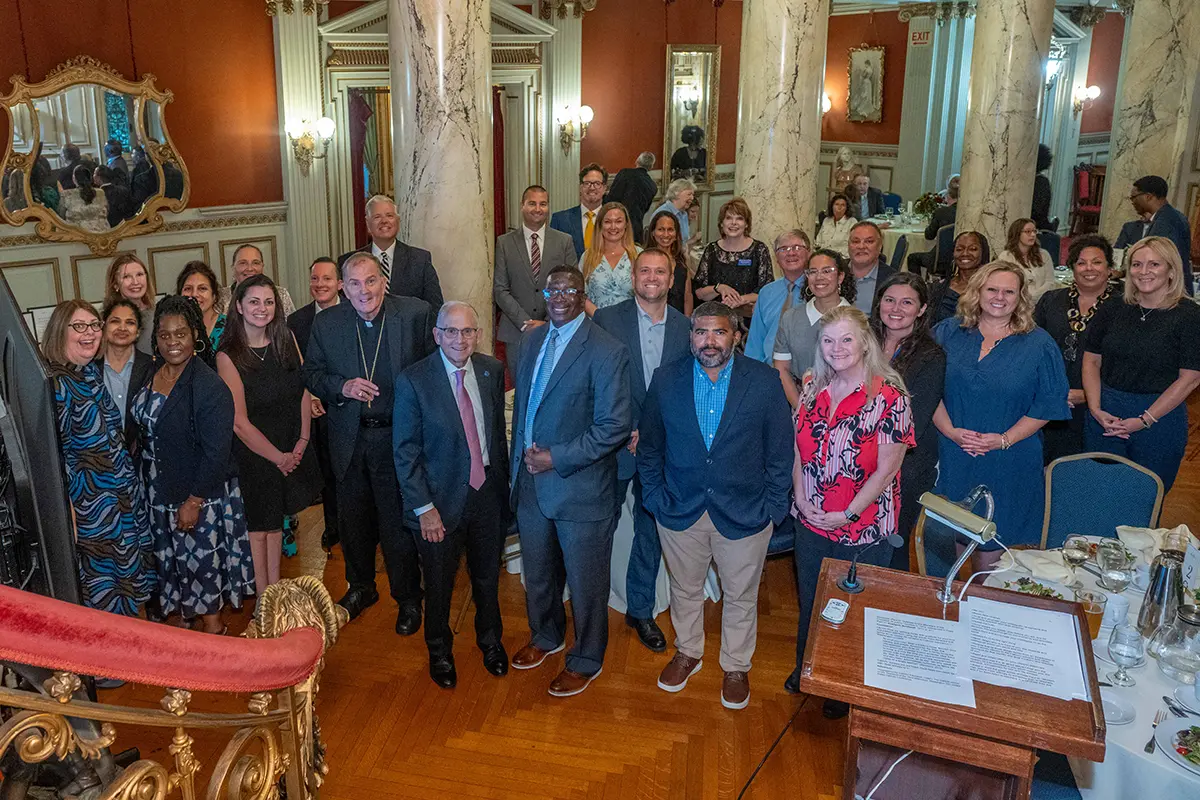This story is part of a new ongoing series called Stories of Hope and Inspiration. We hope you enjoy reading these stories during our time apart.
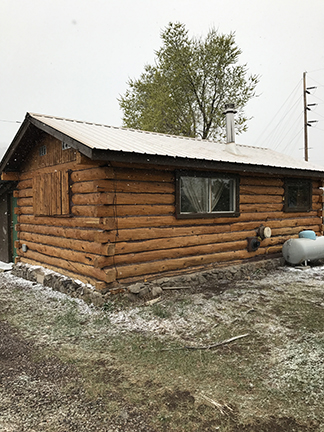
Today’s world seems very uncertain for nearly all of us. We don’t know when we’ll return to school or work or even what we considered a normal life just a few months ago. But for others, uncertainty has been a way of life for months or even years before COVID-19 entered the public lexicon.
GCU graduate student Mia Corona knows uncertainty and struggle. She has battled debilitating anxiety and depression, which affected her professional life when she took time off to seek treatment. She hoped a change of scenery from her life in New Jersey would be ideal, and she crossed the country for an internship with the U.S. Forest Service in rural Colorado. But in some ways, being away from family and friends only worsened her problems, and she had no path planned for after her internship.
“After doing some researching, I stumbled across GCU’s website. After reading about the holistic health studies [now integrative health] graduate program, I realized these were all things I had been wanting to learn for my own well-being,” says Mia, who applied for the program in 2017. “After a phone interview in my remote, spotty-reception cabin, I was accepted. I did not know where I was going to live or work, but at least I had a plan to attend school.”
Persistence Through Struggle
Over the next two years, Mia struggled to find a stable job and housing, living with different friends and family throughout New Jersey and Pennsylvania. She was in and out of therapy, but it was hard to maintain an effective treatment plan because she moved around so much.
“The one constant I had in my life was the holistic health studies program at GCU,” says Mia. “I really enjoyed all of the classes and interacting with like-minded people. I felt very passionate about it and often commuted to campus up to two hours in each direction to attend classes.”
Unfortunately, Mia’s mental health issues led to hospitalization twice in Spring 2019. Family members and doctors urged her to put school on hold until she was more stable, but “this was never an option for me,” she says.
“My professors were gracious and understanding to allow me an incomplete for the semester, giving me extra time to complete it once I got out of the hospital,” Mia adds. “I felt very strongly about finishing and did not want to postpone.”
Mia finished the year last summer while recovering at her parents’ home and planning for the future, which would include acceptance into a graduate counseling program in New Mexico.
Integrative Health: A Partnership
“Mia is a very dedicated graduate student, despite some of her life challenges,” says Sachiko Komagata, Ph.D., P.T., chair of the Department of Integrative Health and Exercise Science and associate professor of integrative health. “Though she had to take incompletes for a few of her courses due to her mental health crises, she communicated diligently and followed through each time.”
After talking about probiotics’ impact on mental health and the immune system in class one day, Dr. Komagata suggested that if anyone wanted to make sauerkraut together, she would bring all the materials. Mia was the only student available.
“The two of us talked and chopped eight heads of cabbages, salted, pounded, and then waited for five weeks for delicious and nourishing probiotic homemade food,” says Dr. Komagata.
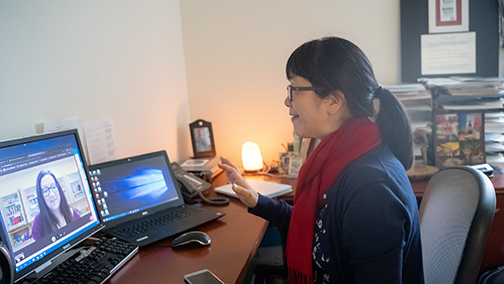
This caring and sharing demonstrated by both faculty and students is a common thread woven throughout the integrative health program.
Emory Wilder, M.D., GCU lecturer in integrative health, compares integrative health in a video for GCU’s Open House to that of a “chalice culture,” based on a concept from Riane Eisler’s book The Chalice and the Blade: Our History, Our Future.
“The chalice—everybody drinks. And so, chalice cultures are partnership cultures, where it’s based on linking relationships . . . everybody works together,” says Dr. Wilder. “For me, the joy in teaching [integrative health] comes from trying to encourage these values—interconnection, feminine intuition, the wisdom of the body—spiritual values like this.”

When It Rains, It Pours
Mia’s final two classes for Spring 2020 were online, so she headed back across the country to get a head start on finding a job and permanent housing before her new graduate program began in the fall. She’d hoped it would be another fresh start, but her sublet fell through, and she discovered her financial aid wasn’t going to cover enough of the program to make it financially feasible. She realized she needed to take her remaining funds and move back east.
“I did not know where I was going to live, as I had essentially overstayed my welcome with the family members that I had been staying with,” says Mia. “My main priority, as it always had been, was to finish and graduate. I was trusting of the process, even though there was so much uncertainty and chaos.”
Her trip home was fraught with even more challenges—a blown-out tire in Oklahoma, which she changed herself in the pitch black on a highway shoulder, and an ER visit in Illinois after coming down with the flu. But still, Mia persevered. She returned to New Jersey and spent the last of her money on a motel room at the beach for a week.
Hope From a Helping Hand
During this time, Mia finished one of her classes and threw herself into a daily regimen of meditation for her final project. As the end of her week at the motel neared, she was unsure where she would be able to live next. Meditation and her schoolwork kept her grounded, and she continued to hope and trust the process.
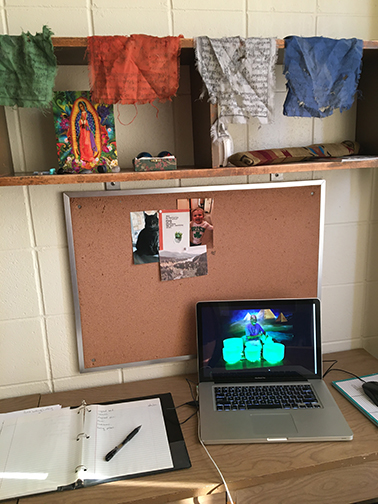
That same week, the seriousness of the COVID-19 outbreak was announced, and quarantine was put into place. While checking her e-mail, Mia saw a message from GCU Cares, offering support services for students in need, and she responded.
“I was completely floored by the response I received,” she says. “The day before I was supposed to check out of the motel, I was offered a room on campus. I was beyond grateful and in disbelief, which only heightened when I learned I was being given the position of GCU Cares coordinator for the remainder of the semester.”
GCU Cares: From Superstorm to Pandemic
GCU Cares launched in the aftermath of Superstorm Sandy in 2012, when Georgian Court was closed for two weeks and many of its students, faculty, and staff were affected by damages to homes, cars, and possessions from flooding and other storm damage at the Jersey Shore. While it has always been available to students since, the urgent need was apparent when the pandemic changed everything.
“We were able to move Mia into the residence hall for the remainder of the semester, just like our residential students with emergent needs,” says Kathleen Boody, associate vice president for student retention, who oversees GCU Cares. “The Angel Fund covered the cost of her housing. We also found she was eligible for Federal Work-Study, so we offered her work through the GCU Cares response.”
Ms. Boody adds that Mia has been able to secure and mail supplies for other students at the direction of the GCU Cares response team, the rest of whom are not on campus. Mia has been helping to distribute and restock the student food pantry as well as offer expanded hours. Using her integrative health skills, she has also researched and provided free stress reduction tools to students.
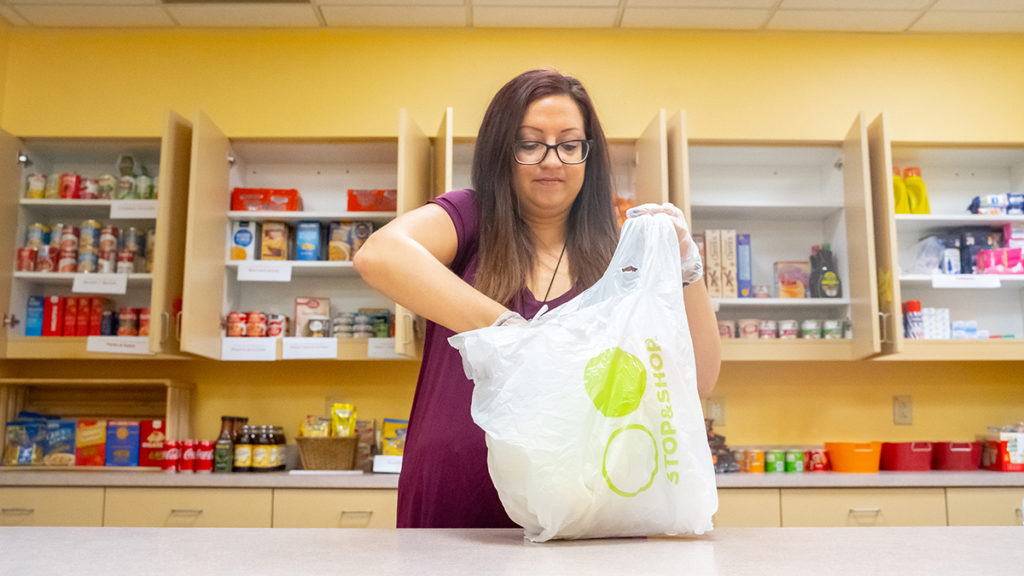
Mia is not the only student to receive assistance during the pandemic. According to Ms. Boody, GCU Cares has helped about 40 students in March and April that were either self-referred or referred by GCU faculty or staff. That help has included providing everything from computers and other hardware for remote learning, software resources (mostly access to free resources), e-textbooks and learning platforms, equipment to get internet and access to free internet resources, emergency travel home expenses, and food pantry needs.
While Mia is still unsure of her plans after graduation, the GCU Office of Career Services has been helping her modify her résumé and find jobs that will be a good fit. She has also been inspired to raise awareness for homelessness and hopes that she might offer some type of services to those in need in the future. She says her own experience has given her a greater sense of compassion and understanding to those in similar situations and wants to help break the stigma associated with those topics, using the integrative health skills she has been applying in her own life.
“I had trusted the process and the journey I was on, but never in a million years could I have imagined that I would receive that amount of support,” Mia adds. “I still have a long road ahead of me, but today I am eating healthier, practicing self-care, and I feel better, mentally and physically, than I have in many, many years. I am not sure where I would be right now if I had not reached out to GCU Cares, but I will be eternally grateful for the help they have given me during this time.”
If you are or know of a GCU student in need, please reach out to GCU Cares. This support is possible through your generous donations to GCU’s Angel Fund. You can help us continue this work and bring hope and support to our community by giving today and selecting The Angel Fund/Student Emergency Needs as the designation.
Story by Tara M. Strickland. Photos of Mia and Dr. Komagata by GCU psychology major Joshua Tinto ’20. All other photos supplied by Mia Corona ’20.

